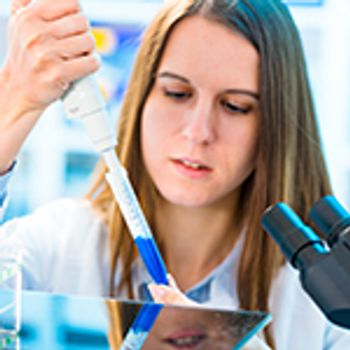
Biopharma industry faces production challenges as gene therapies move from clinical to commercialization.

Biopharma industry faces production challenges as gene therapies move from clinical to commercialization.

Mass-produce cell and gene therapies presents the biopharma industry with a unique set of challenges.

Researchers in China are playing a role in advancing gene therapy development.

Catalent Biologics has entered into a long-term strategic agreement to develop and manufacture an AveXis gene therapy treatment for spinal muscular atrophy (SMA), Zolgensma.

Kite, a Gilead company, announced plans to build a new facility for the development and manufacturing of the starting material for the production of cell therapies, viral vectors.

Amicus Therapeutics has entered into a strategic gene therapy development and manufacturing collaboration with Brammer Bio, which is a part of Thermo Fisher Scientific.

Novavax will sell two Maryland-based vaccine development and manufacturing facilities for Catalent’s expanding gene therapy footprint.

IVERIC bio and Catalent Biologics have entered into a strategic manufacturing agreement for gene therapy product candidates to treat orphan inherited retinal diseases.

The companies have signed a strategic multi-year manufacturing agreement for the future commercial production a late-phase investigational cell therapy.

The $10-million investment will include a 500-L single-use perfusion bioreactor and seven patented downstream processing units.

A new facility to be built in the Philadelphia Navy Yard will support commercial production for autologous tumor-infiltrating lymphocyte cell therapy products from Iovance Biotherapeutics.

GE Healthcare launches Chronicle GMP-compliant automation software for cell therapy manufacturing.

The highly customized nature of cell and gene therapy production means that manufacturing innovations for one therapy may not be easily transferable to others.

Harvard University researchers used single-cell sequencing to identify a protein expressed uniquely by insulin-producing beta cells created from stem cells in the laboratory.

The Vaccine Development and Bioprocess Cell Culture Technology Day will take place on May 16, 2019 in Baltimore, MD.

In collaboration with Pall Corportion, biotech company Freeline completed the first full-scale run at its newly commissioned, GMP gene-therapy manufacturing facility in the UK.

A new facility in Frederick County, MD, will expand the company’s cell therapy manufacturing capabilities.

Catalent’s acquisition of Paragon Bioservices will provide expertise and in expanding gene and cell therapy markets.

At INTERPHEX 2019, CEO Richard Johnson highlighted the importance of PDA’s new Asian business unit and outlined the organization’s plans. Data integrity guidance for manufacturing and quality systems will be published by the end of the year, as efforts move into big data and artificial intelligence.

Adding to an existing $115-million investment, the 700,000-ft2 site in Longmont, CO will expand AveXis’ gene-therapy manufacturing capacity.

NJII and Pall collaborate to address biomanufacturing technology and workforce development challenges.

Valitacell, Solentim, and Microcoat were awarded EUR 3.5 million (US$4 million) to produce an integrated platform to deposit, culture, profile, and select optimal cells for biologic drug manufacturing.

Belgium-based CDMO MaSTherCell will expand its European manufacturing capacity for cell and gene therapy products by setting up a new facility in Belgium.

Think ahead to production requirements when planning strategies in early development of gene and cell therapies.

The companies aim to assess automated CAR-T cell therapy manufacturing at the point-of-care and develop technologies to facilitate patient access to immunotherapies.